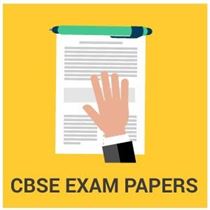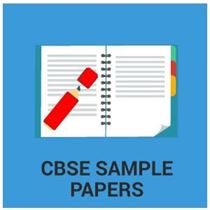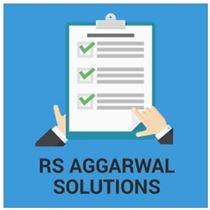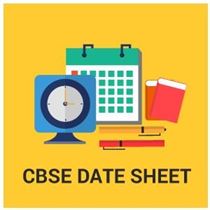The Central Board of Secondary Education (CBSE) is one of the most prestigious and preferred educational boards in India. CBSE Board aims to provide holistic and healthy education to all its learners so that students can get adequate space to develop mentally and physically. CBSE Board is known for its comprehensive syllabus and well structured exam pattern which helps students to get a detailed idea about the entire curriculum. There are around 20,102 schools under the board which follows the NCERT curriculum.
CBSE Latest Update: CBSE Board Exam 2021-22 will be held in 2 parts on the reduced syllabus. Click here to know the complete details on the Special Scheme of Assessment for Classes 10 and 12 for the academic year 2021-22. Board has also released the CBSE Date Sheet for Term 2 exam 2021-22 on the official website.
Important Highlights of CBSE Board
 |
Central Board of Secondary Education (CBSE) |
| Abbreviation | CBSE |
| CBSE Full Form | Central Board of Secondary Education |
| Type | Governmental Board of Education |
| Founded | 3rd November 1962 |
| Headquarters | New Delhi, India |
| Chairperson | Mr. Manoj Ahuja |
| Phone No. | 011 2250 9256 |
| Official languages | Hindi, English |
| Parent organisation | Ministry of Human Resource Development |
| Official Website | www.cbse.nic.in |
| Tag Line | “Committed To Equity And Excellence In Education” |
The academic session 2020-21 has not started yet due to the spread of the Coronavirus. It is expected that this year the schools will begin by September. Usually, the academic session starts in the month of June/July. Here we have summarized the important points related to the CBSE board exams.
- CBSE class 12 board exams were conducted from 15th Feb 2020 to 30th March 2020, and class 10 board exams were conducted from 15th Feb 2020 to 20th March 2020. But due to COVID-19 pandemic, exams were only conducted for few subjects and for other subjects exams got cancelled.
- The results for class 12 and class 10 were declared on 13th July 2020 and 15th July 2020, respectively.
- The board has also revised the CBSE syllabus by keeping in mind the current situation of the novel Coronavirus. The syllabus of class 9 to 12 has been reduced by 30% with core concepts retained as the academic session will start late this year.
- The new education policy 2020 has been announced, which brings several major reforms in the Indian education system. Among the major reform, the 10+2 structure in the schooling system is the one which has been replaced by a 5+3+3+4 structure.
- Students are advised to focus on self-learning and exploring new things by themselves.
CBSE Board Class 10 Exam
CBSE Board Class 10 is a very important stage of learning for the students. This is for the first time they appear for the board exam. So, CBSE Class 10 students have to really work hard throughout the academic session. The concepts that they will learn at this stage will help them in solving the problems of daily life. Also, it will benefit them in further studies. So, they should focus on building the concepts which will work as a strong foundation for their future.
CBSE Board Class 12 Exam
After passing class 10, students have to choose the stream of their choice among science, commerce and arts. The stream that they opt according to that they pursue their studies in class 11 and 12. CBSE Class 12 is the last stage of schooling and thus it becomes even more crucial. Based on the marks scored in CBSE class 12, students will get admission in reputed government colleges. Also, in most of the competitive examination, the syllabus of class 11 and 12 is asked. So, students should leave no stone unturned for CBSE class 12 exam preparation.
CBSE Exam Pattern
Students studying in Central Board of Secondary Education are assessed in two areas:
- Scholastic: In this students are focused on core academic areas. All the main subjects like social science, science, maths and language subjects are taught to them.
- Co-scholastic: This area includes other activities such as games, sports, art, music, craftwork etc which are essential for the development of a student. This has been added to make students healthy and fit as it leads to better learning.
The academic year of the Scholastic areas is divided into two terms which are Term 1 and Term 2 and two types of tests which are Formative Assessment and Summative Assessment are conducted to evaluate the academic subjects.
- Formative Assessment: In the primary classes, the formative assessment (FA) tests are in the form of oral tests, dictation, homework, class test, projects & assignments, storytelling, elocution, memory test, quiz, etc.
- Summative Assessment: Here students are tested internally. The Summative Assessment (SA) is conducted at the end of each term i.e two times each year. The tests are conducted by the school in pen and paper mode.
Check CBSE Marking Scheme to know the detailed marking scheme and exam pattern for Class 10 and Class 12.
CBSE Board Grading System
The CBSE board exam structure for Class 6 to 8 consists of Term 1 and Term 2. The detailed exam structure for the two terms is described in the tables below.
CBSE (Class 6 – 8) |
Term 1 |
Term 2 |
| Subjects | Language 1, 2, & 3, Maths, Science, Social Science, other subjects | Language 1, 2, & 3, Maths, Science, Social Science, other subjects |
| Period Assessment (PA) | 10 marks | 20 marks |
| Notebook submissions | 5 marks | 5 marks (at term end) |
| Sub – enrichment | 5 marks (at term end) | 5 marks (at term end) |
| Half yearly exam (Term 1) / Yearly exam (Term 2) | 80 marks | 80 marks |
| Total marks | 100 marks | 100 marks |
Students are awarded grades and not marks. The CBSE results are declared in 2 categories: Eligible for Improvement of Performance (EIOP) or Eligible for Qualifying Certificate (QUAL).
1. CBSE Board Grading System for Primary Classes
Percentage |
Grade |
Remark |
| 90% to 100% | A* | Outstanding |
| 75% to 89 % | A | Excellent |
| 56% to 74 % | B | Very Good |
| 35% to 55 % | C | Good |
| Below 35 % | D | Scope for improvement |
2. CBSE Secondary School Grading System
Grade |
Marks |
Grade Points |
| A1 | 91-100 | 10 |
| A2 | 81-90 | 9 |
| B1 | 71-80 | 8 |
| B2 | 61-70 | 7 |
| C1 | 51-60 | 6 |
| C2 | 41-50 | 5 |
| D | 33-40 | 4 |
| E1 | 21-32 | 0 |
| E2 | 20 and below | 0 |
CBSE Board Exam Sample Papers and Question Papers
Practice is very important for the students before the actual exam. It helps them in knowing how well they are prepared to face the exam. Also, it helps in assessing their performance. So, students must practice sample papers and questions papers. CBSE Board has also released the 2020 Sample Papers for Class 10 and 12 students to make them thorough with question paper pattern. Solving CBSE 2020 Sample Papers will give them an idea of exam pattern, marking scheme etc. Moreover, they can also time their preparation level.
CBSE Previous Year Question Papers
| CBSE Previous Year Question Paper Class 12 |
| CBSE Previous Year Question Paper Class 10 |
CBSE Board Exam Syllabus and Important Questions
Syllabus is an important study resource for students. It not only gives an overview of what students going to study during the academic session but also helps them it tracking the topics that they have covered. So, here we have provided the CBSE syllabus for all the class 1 to 12. Moreover, we have also provided the CBSE important questions for class 8 to 12 that are most likely to be asked in the exams.
CBSE Books
CBSE books are the most reliable learning tools for the students. Without books learning is incomplete. CBSE board follows the NCERT books for all the classes from 1 to 12. These e-Books are also available on the CBSE portal and NCERT website. The CBSE textbooks are written in simple language and covers the entire syllabus. The question paper is also designed from these NCERT textbooks. So, it strongly recommended to the students to study from NCERT books.
The NCERT Books app is launched as an initiative to promote digital education and provide the study resources to students. The App can be easily downloaded by the students and is available in Android, IOS and Windows platform. It provides access to digital textbooks for all classes, supplementary books, audios in various languages, videos, images, maps, question banks, details about the events such as exhibitions, contests, workshops etc.
CBSE Notes and Revision Notes
Once students solve all the questions of CBSE Books then they start with the revision. For this they need notes. So, in the table below we have provided the CBSE Notes for class 6 to 12. Also, we have provided revision notes that will help students in their revision when exams are near to its conduct.
CBSE MCQs
CBSE has introduces two term examination for the academic session 2021-22. The term 1 and term 2 exams will be based on multiple choice questions. So, it’s crucial for students to practice the MCQs for each subject. To help them prepare well, we have provided the CBSE MCQs for Class 10 students. They can access the chapter-wise MCQ questions for Maths, Science, English and Social Science subject by clicking on the links below.
- CBSE Class 10 Maths MCQs
- CBSE Class 10 Science MCQs
- CBSE Class 10 English MCQs
- CBSE Class 10 Social Science MCQs
CBSE Practicals
Practicals are equally important as the theory subjects. It improves learning, promotes basic skills and creates interest in students. The practicals are introduced by CBSE board in class 9, 10, 11 and 12. Till class 8 there are no practical subjects instead they have projects and models. The board ensures that all affiliated schools have the necessary infrastructure to carry out the experiments. It promotes the laboratory work in the school system so that students learn the things by doing it. The board also conducts the practical exams similar to that of theory.
| CBSE Science Projects |
| CBSE Maths Projects |
| CBSE Science Working Models |
CBSE Extra-Curricular Activities
CBSE board introduces various extra curriculum activities to explore the talent of the students. This includes local art, craft, literature and skills, health and physical education, yoga, traditional games, indigenous sports, NCC, scout and guide, martial art etc. These activities will not only develop the skills of the students but also create their interest in other sectors such as sports, art and craft etc. Various competitions are also conducted within the school and inter-school to encourage and motivate the students. These extra curriculum activities integrate all areas of learning with each other in terms of knowledge, skills, comprehension, values and attitude. Thus make the student a good citizen who contributes to making the world a happy place.
Essays for CBSE Students
Essay writing is an important part of English. From class 3, essay writing has been introduced in the subject, and it continues till class 12. In lower classes, students are asked to write essays on topics such as my family, my school, my best friend, etc., and gradually the level increases as students enter into higher classes. The purpose of writing the essay is that students can express their thoughts in their own words. English as a language subject provides a medium to students to express their opinions and viewpoints in a better way. Here, we have provided essays on some general topics. By going through them, students will get an idea of writing a good essay during the exam.
| CBSE Essays |
| Essay on Independence Day |
| Essay on Women Empowerment |
| Essay on Republic Day |
| Essay on Constitution of India |
CBSE English Study Material
Students can’t ignore the importance of the English subject. If they want to score high in their board or annual exams, they have to study all the subject. Most of the time, students do not take English subject seriously and as a result of which they couldn’t score as per their expectation. So, to help them prepare better, we have provided English Unseen Passages.
| Unseen Passages for class 10 |
| Unseen Passages for class 9 |
| Unseen Passages for class 8 |
| Unseen Passages for class 7 |
| Unseen Passages for class 6 |
| Unseen Passages for class 5 |
| Unseen Passages for class 4 |
CBSE Latest Update
CBSE board keep coming up with the latest news and announcement. It is essential for the students to be updated with all the news. We have compiled all the latest update and notifications released by the CBSE here so that students get all the information instantly at one place.
CBSE Videos on Important Topics
We have tried to make learning easier and fun through interactive videos. Here we have provided the links of a few videos. In these videos, the concepts are explained through various examples and day-to-day activities. It will help students to understand the topics easily. Go through them and enjoy learning.
Human Eye
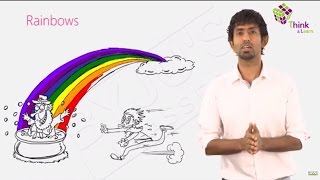
Thrust and Pressure

Area of Hollow Cylinder
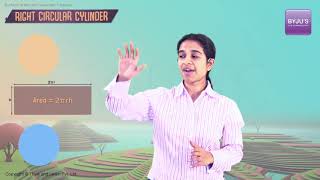
Electronic Configuration

If students want to watch more such videos then download BYJU’S – The Learning App from Google Play Store / IOS App Store. Keep learning and stay tuned to get the latest update on CBSE along with syllabus, marking scheme, sample papers, previous year question papers and more.
Frequently Asked Questions on CBSE
What is the full form of CBSE?
NCERT Books and CBSE Sample papers are sufficient to score good marks?
The questions paper is designed based on the syllabus prescribed by the board. Most of the questions are asked from the NCERT textbook. So, students must thoroughly solve the NCERT book, CBSE sample paper and previous year question papers to get the better result. Along with this they also go through the sample paper blueprint and marking scheme.
Can a student use a calculator during exams?
No, the use of calculator is not allowed in exams.
What is the procedure for correction in Date of Birth?
The correction in date of birth can be done by the board only within one year of the date of declaration of class 10 result. After one year no correction can be made.
What is the passing criteria in CBSE?
Students have to obtain at least 33% marks (separately in theory & practical) in five subjects to be declared pass.
Can a student be detained from appearing in Board examination?
As per Rule 15 of the Examination Bye-Laws, a student cannot be detained by the head of affiliated school from appearing in the exam. It can happen only in one case when the attendance of the student is less.
What is the criteria for compartment?
A student who fails in one subject out of 5 subjects is eligible to give compartment exam.
Can a student who scores less than 60% in class 10 get admission in class 11 with PCM subjects?
Schools have their own admission rules for the allocation of stream in class 11. CBSE has no interference in such matter. So, if a student want to get into science stream then he/she has to score good marks in class 10.
Does CBSE award merit Certificate in class 12?
Yes, the CBSE awards Merit Certificates in each subject to the top 0.1% of students passing that subject, provided they have passed the examination as per the pass criteria of the Board.



